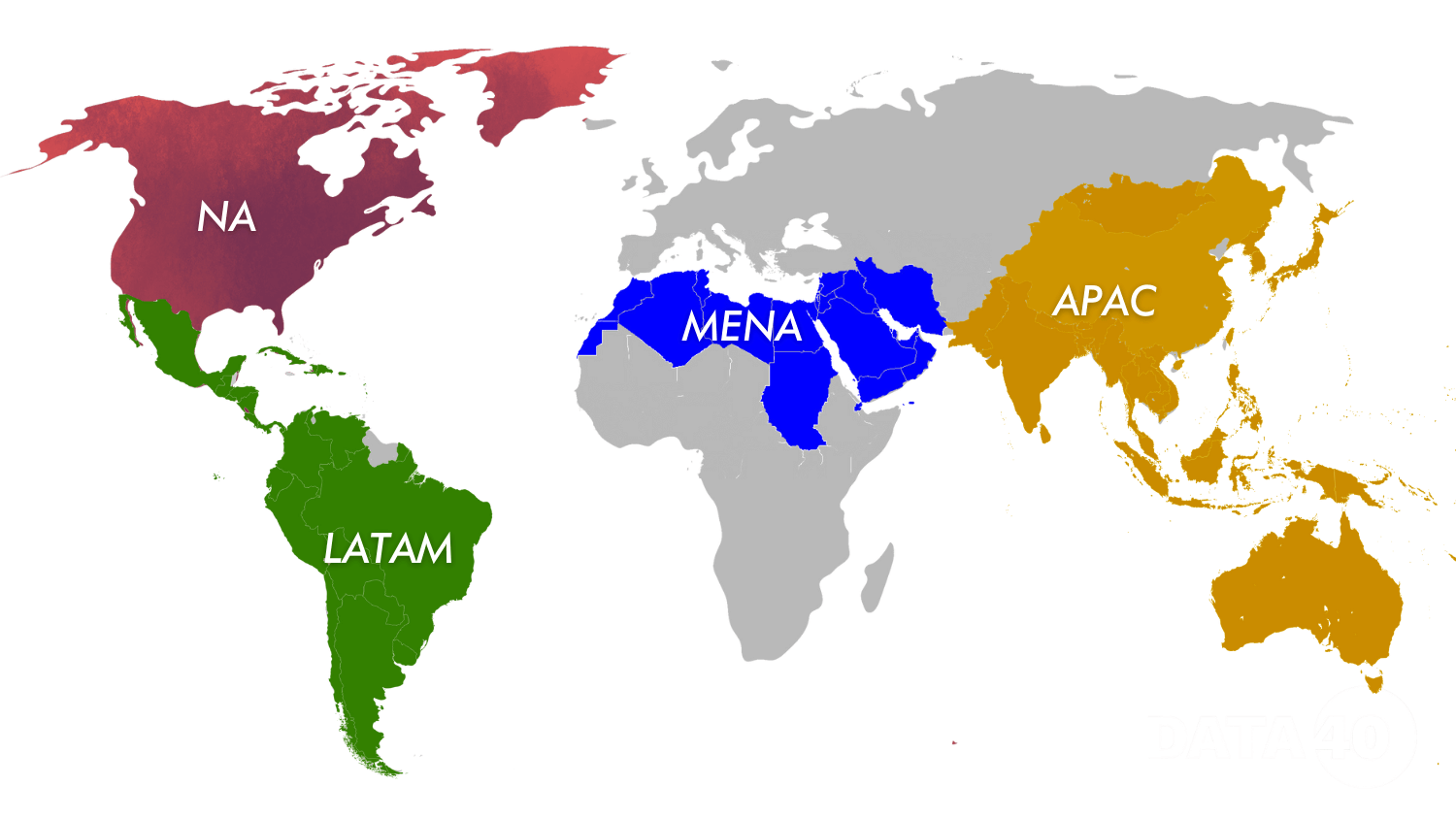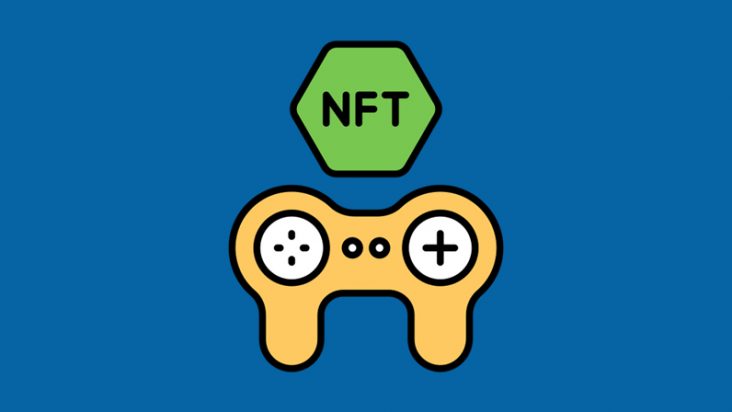![How to Launch a Casino: Key Service Providers [2024] How to Launch a Casino: Key Service Providers [2024]](https://data40.com/wp-content/uploads/2024/11/125_header.png)
The global casino and gambling industry has grown quickly in the last decade due to new technologies and the rise of online gaming. This sector includes land-based casinos, online casinos, sports betting, and other types of gambling. It is expected to reach over $500 billion in value by 2027. Factors like more people using the internet, the popularity of mobile devices, and the rise of live dealer games have fueled this growth.
Recently, changes in regulations have opened up new markets, attracting both big operators and new startups. The industry significantly boosts local economies through tax revenues and job creation and is also a major draw for tourists in places like Las Vegas, Macau, and Monaco.
The move towards online and mobile gaming has changed the industry, helping operators reach a global audience. With the addition of blockchain, cryptocurrencies, and VR/AR experiences, the casino sector is constantly innovating to increase user engagement.
This article offers a detailed look at the main players and services shaping the modern casino and gambling industry. It covers:
- Top game providers known for creating popular and unique casino games.
- The role of turnkey solution providers in offering complete packages for casino operators.
- Insights from consulting firms in key regions (North America, MENA, APAC, LATAM), helping operators handle market challenges.
- The importance of digital marketing agencies in promoting online casinos and attracting players through targeted strategies.
By combining information from different parts of the industry, this article aims to give readers a clear understanding of the casino and gambling ecosystem and the key players driving its success.
Top Casino Game Providers

Casino game providers are companies that specialize in creating, developing, and supplying the games that are featured on both online and land-based casino platforms. These providers play a crucial role in the gambling ecosystem, as the quality, variety, and innovation of the games they offer can significantly impact the success of a casino operator.
The role of a game provider includes:
- Game Development: Creating a diverse portfolio of games such as slots, table games (like blackjack and roulette), live dealer games, and specialty games (like bingo or scratch cards). The development process involves graphic design, sound engineering, and software programming, ensuring games are engaging and visually appealing.
- Game Mechanics and Features: Developing unique game mechanics (e.g., cascading reels, progressive jackpots) and innovative features (e.g., bonus rounds, multipliers) to enhance the player experience and boost engagement.
- Compliance and Licensing: Ensuring that the games meet the regulatory requirements of various jurisdictions, maintaining fairness, and providing Random Number Generator (RNG) certification for transparency.
- Integration and API Solutions: Offering seamless integration for online casinos through APIs and software solutions, allowing operators to easily add games to their platforms.
- Player Experience: Focusing on user engagement, which is achieved through immersive gameplay, mobile optimization, and incorporating cutting-edge technology like VR, AR, and blockchain.
In the context of our earlier articles on Top casino game providers, we highlighted industry leaders, who have consistently set the benchmark in game development.
Top Casino Turnkey Solutions Providers

Turnkey solutions in the casino industry refer to comprehensive, ready-to-deploy packages that provide all the essential components needed to launch and operate an online or land-based casino. These solutions are designed to offer a hassle-free setup, enabling operators to focus on growing their business without getting bogged down by the complexities of software development, licensing, or payment integration.
Key Benefits of Turnkey Solutions:
- All-in-One Package: Turnkey solutions typically include a gaming platform, game content, payment processing, customer support, and back-office tools. This eliminates the need for operators to source and manage multiple service providers.
- Faster Time to Market: With a pre-built, fully integrated system, operators can launch their casino quickly, gaining a competitive edge and reducing initial development costs.
- Scalability and Flexibility: Most turnkey solutions are designed to be scalable, allowing operators to expand their game offerings, integrate new payment methods, and customize the platform as their business grows.
- Regulatory Compliance: Reputable turnkey solution providers ensure that their platforms meet the regulatory standards of various jurisdictions, simplifying the process of acquiring licenses and staying compliant.
- Access to Premium Game Content: Many turnkey providers partner with top game developers, offering a diverse portfolio of games that cater to a wide range of player preferences.
In our previous articles on Top casino turnkey solutions providers, we noted that partnering with a strong turnkey solution provider often correlates with higher player retention rates and increased revenue. The seamless integration of quality game content and effective marketing tools enables operators to deliver an engaging, user-friendly experience right from the start.
Top Casino Game Developers

Casino game developers are the creative and technical minds behind the games that players enjoy on online and land-based casino platforms. They are responsible for designing, programming, and bringing to life a variety of games, including slots, table games (like blackjack and roulette), and live dealer games. The quality and variety of games offered by developers are crucial factors in attracting and retaining players, making game developers a cornerstone of the gambling industry.
Why Casino Game Developers Matter:
- Innovation and Entertainment: Game developers drive innovation by creating engaging and visually appealing games. They introduce unique game mechanics, immersive themes, and special features like progressive jackpots, bonus rounds, and multipliers, which enhance the gaming experience and keep players entertained.
- Diverse Game Portfolio: A strong portfolio of games is essential for casino operators to cater to different player preferences. Developers offer a wide range of games, from classic slots to new, feature-rich releases, ensuring there is something for every type of player.
- Regulatory Compliance: Top developers work closely with licensing authorities to ensure that their games meet strict regulatory standards. This includes obtaining Random Number Generator (RNG) certification, which guarantees fair play and builds player trust.
- Technological Advancement: Casino game developers are at the forefront of technological advancements, integrating new technologies like VR, AR, and blockchain into their games. This not only enhances the player experience but also helps operators stay competitive in an evolving market.
- Market Adaptation: Leading game developers adapt their content to suit regional preferences. For example, in APAC, developers may focus on culturally relevant themes, while in LATAM, football-themed games are highly popular. This regional adaptation helps operators provide a localized experience and appeal to specific player demographics.
In our previous articles on Top Casino Game Developers, we highlighted how collaborating with industry-leading game developers often results in improved player engagement and higher retention rates. Featuring a diverse and innovative game portfolio from top developers helps operators attract a wider audience and keep players entertained for longer periods. The integration of high-quality, popular games enhances the overall player experience, driving both increased playtime and higher revenue, while also ensuring compliance with industry standards.
Top Casino and Gambling Consulting Firms and Consultants

In the casino and gambling industry, consulting firms and individual consultants serve as strategic advisors who provide specialized expertise to help businesses navigate the complexities of the market. These professionals bring in-depth knowledge across various aspects of the industry, from regulatory compliance and market entry to operational optimization and technology integration.
Role and Significance:
- Regulatory Guidance: The casino and gambling sector is heavily regulated, with complex rules that vary by region. Consulting firms help operators understand local regulations, secure the necessary licenses, and ensure ongoing compliance to avoid legal issues.
- Market Entry Strategy: For businesses looking to enter new markets, consultants provide critical insights into consumer behavior, cultural preferences, and competitive landscape, helping them tailor their offerings for maximum impact.
- Operational Optimization: Consultants work with operators to streamline their business processes, improve efficiency, and boost profitability. This can include anything from advising on technology upgrades to enhancing customer experience through better service models.
- Risk Management: The gambling industry faces various risks, including regulatory changes, fraud, and market volatility. Consulting firms assist in developing comprehensive risk management strategies, ensuring business continuity and protecting revenue streams.
- Strategic Partnerships: Many consultants also play a key role in facilitating partnerships between operators and top game providers, turnkey solution providers, and digital marketing agencies, as highlighted in our previous articles. These partnerships can significantly enhance a casino’s game portfolio, platform capabilities, and marketing outreach.
In our previous articles, we observed that collaborating with experienced consulting firms (MENA, APAC, LATAM, NA) and consultants (MENA, APAC, LATAM, NA) is a key factor in ensuring successful market entry and sustainable growth for operators. By leveraging the expertise of specialized consultants, businesses can effectively navigate regulatory hurdles, optimize their operational strategies, and secure strategic partnerships with industry leaders. This comprehensive support helps operators not only streamline their processes but also enhance their service offerings, ultimately leading to higher player satisfaction, increased revenue, and a more competitive presence in the market.
Top Digital Marketing Agencies

In the highly competitive world of online casinos and gambling, digital marketing is a critical component for reaching, engaging, and retaining players. With the industry’s rapid shift toward online platforms, operators must adopt effective digital marketing strategies to stand out in a crowded market and connect with their target audience.
Key Roles of Digital Marketing in the Casino Industry:
- User Acquisition: Digital marketing plays a vital role in attracting new players through targeted campaigns, including search engine optimization (SEO), pay-per-click (PPC) advertising, and social media marketing. By leveraging these strategies, casinos can increase their online visibility and draw in potential users who are actively searching for gaming experiences.
- Brand Awareness and Trust Building: Establishing a strong brand presence is essential for casino operators to build trust with their audience. Digital marketing agencies help create a consistent brand identity across multiple channels, utilizing content marketing, influencer partnerships, and public relations to enhance credibility.
- Player Engagement and Retention: Engaging existing players is as important as acquiring new ones. Through personalized email marketing, loyalty programs, and targeted promotions, digital marketing agencies help keep players active, encouraging repeat visits and higher lifetime value.
- Data-Driven Strategies: The use of analytics and data insights allows digital marketing agencies to optimize campaigns in real-time, adjusting strategies based on player behavior and preferences. This data-driven approach ensures more effective targeting and maximizes return on investment (ROI) for casino operators.
- Navigating Advertising Restrictions: The gambling industry faces strict regulations on advertising, particularly on platforms like Google and Facebook. Experienced digital marketing agencies are adept at navigating these restrictions, employing compliant strategies that still achieve strong results without breaching guidelines.
As highlighted in our articles on top digital marketing agencies (MENA, APAC, LATAM, NA), effective digital marketing is a key driver of player engagement and revenue growth. Agencies specializing in the casino industry bring the necessary expertise and innovative tactics to help operators enhance their online presence, build a loyal player base, and stay competitive in an ever-evolving landscape.
Regional Specifics Across Key Sectors in the Casino and Gambling Industry

By incorporating regulatory insights from “Global Gambling and iGaming Regulations: A Complete List“, we can provide a deeper understanding of how legal frameworks impact industry strategies and operations across different regions. This context emphasizes the importance of compliance and tailored approaches in navigating the complex global gambling landscape.
North America (NA)
- Regulatory Overview: The U.S. gambling market is governed by a complex patchwork of state-level regulations, with states like New Jersey, Pennsylvania, and Nevada leading the way in legalizing and regulating online gambling. Canada has seen increased interest in single-event sports betting following the legalization of Bill C-218.
- Impact on Game Providers and Turnkey Solutions: The fragmented regulatory landscape requires game providers and turnkey solution platforms to tailor their offerings to meet the specific requirements of each state or province, ensuring compliance with local gaming laws and player protection measures.
- Consulting Firms’ Role: Consulting firms specializing in North American regulations are crucial in guiding operators through the complex licensing processes and advising on state-specific compliance, as emphasized in our article on global gambling regulations.
Middle East and North Africa (MENA)
- Regulatory Overview: Gambling is heavily restricted or outright banned in many MENA countries due to cultural and religious beliefs. However, there are exceptions in regions like Egypt and Lebanon, where certain forms of gaming are allowed.
- Impact on Industry Players: Due to the regulatory constraints, many game providers and turnkey solutions focus on catering to expatriates or offering alternative gaming options like social and skill-based games. Additionally, operators often establish offshore platforms targeting MENA players from more permissive jurisdictions.
- Consulting and Compliance Needs: Given the strict legal environment, consulting firms help operators navigate regulatory risks and advise on market entry strategies that align with local laws while targeting the region’s growing appetite for online entertainment.
Asia-Pacific (APAC)
- Regulatory Overview: APAC’s regulatory landscape is highly fragmented, with diverse rules across countries. While Japan and South Korea have legalized certain forms of online betting, China enforces strict bans, pushing operators to focus on offshore services. The recent regulation changes in India around online skill-based gaming highlight the region’s evolving legal framework.
- Influence on Strategy and Operations: Game providers must ensure that their content is localized and compliant with varying legal standards across the region. Turnkey solution providers are increasingly focusing on mobile optimization and incorporating local payment systems like Alipay and WeChat Pay to meet regulatory and consumer needs.
- Consulting Firms’ Expertise: Consulting firms are instrumental in helping operators understand the diverse legal landscape and advise on navigating regulatory complexities, as detailed in our comprehensive list of global regulations.
Latin America (LATAM)
- Regulatory Overview: LATAM is an emerging market for online gambling, with countries like Brazil, Mexico, and Colombia actively revising their regulations to accommodate the growing demand. Brazil’s push toward legalizing online sports betting is expected to reshape the market significantly.
- Industry Adaptation: Game providers and turnkey solution providers must address local licensing requirements and integrate popular regional payment options like Pix (Brazil) and OXXO (Mexico) to comply with regulations and cater to local preferences.
- Role of Consulting Firms: With evolving legal frameworks, consulting services are crucial in assisting operators with regulatory compliance and helping them establish a compliant and localized presence, ensuring they meet the standards outlined in LATAM’s regulatory guidelines.
A crucial factor shaping the casino and gambling industry is the complex and varied landscape of global gambling licenses. For operators, obtaining the right licenses is essential for establishing credibility, accessing key markets, and ensuring compliance with local laws. Navigating these licensing requirements can be challenging, as each jurisdiction has its own set of rules and criteria. Our reports for Anjouan, Gibraltar, Malta and Curacao global licenses provide a comprehensive overview of the major licensing authorities, their regulations, and the implications for operators seeking to enter different regional markets. This research will help industry players understand the legal frameworks that impact their operations and highlight the best strategies for compliance and market expansion.
Future Trends
The casino and gambling industry is undergoing significant transformation, driven by technological advancements and evolving consumer preferences. Key trends shaping the future include:
1. Expansion of Online Gambling
The online gambling market is projected to grow from USD 93.26 billion in 2024 to USD 153.21 billion by 2029, at a CAGR of 10.44%. This growth is fueled by increased internet penetration and the convenience of mobile gaming.
2. Integration of Cryptocurrencies and Blockchain
The adoption of cryptocurrencies like Bitcoin and Ethereum is enhancing transaction security and transparency in online casinos. Blockchain technology ensures fair play and builds trust among players.
3. Emergence of Virtual Reality (VR) and Augmented Reality (AR) Casinos
VR and AR technologies are creating immersive gaming experiences, allowing players to engage in realistic casino environments from their homes. This innovation is expected to attract a broader audience seeking interactive entertainment.
4. Growth of Esports Betting
The rise of esports has introduced new betting opportunities, particularly among younger demographics. Esports betting is becoming a significant segment within the gambling industry, offering diverse wagering options.
5. Personalized Gaming Experiences through Artificial Intelligence (AI)
AI is enabling casinos to offer personalized gaming experiences by analyzing player behavior and preferences. This leads to tailored game recommendations and promotions, enhancing player engagement and loyalty.
6. Emphasis on Responsible Gambling
With the industry’s expansion, there is a growing focus on responsible gambling practices. Operators are implementing measures to promote safe gaming environments and address concerns related to gambling addiction.
These trends indicate a dynamic future for the casino and gambling industry, characterized by technological innovation and a commitment to enhancing player experiences.
Conclusion
The future of the casino and gambling industry hinges on the collaborative roles of game providers, turnkey solution providers, consultants, and digital marketing agencies. Game providers drive player engagement with innovative content, while turnkey solutions ensure seamless operations and compliance. Consultants offer strategic guidance, helping operators navigate complex regulations, and digital marketing agencies excel in acquiring and retaining players through targeted campaigns. Adapting services to meet regional market needs—from mobile-first strategies in APAC to compliance in NA and localization in LATAM—will be crucial for success and sustained growth in this dynamic industry.







